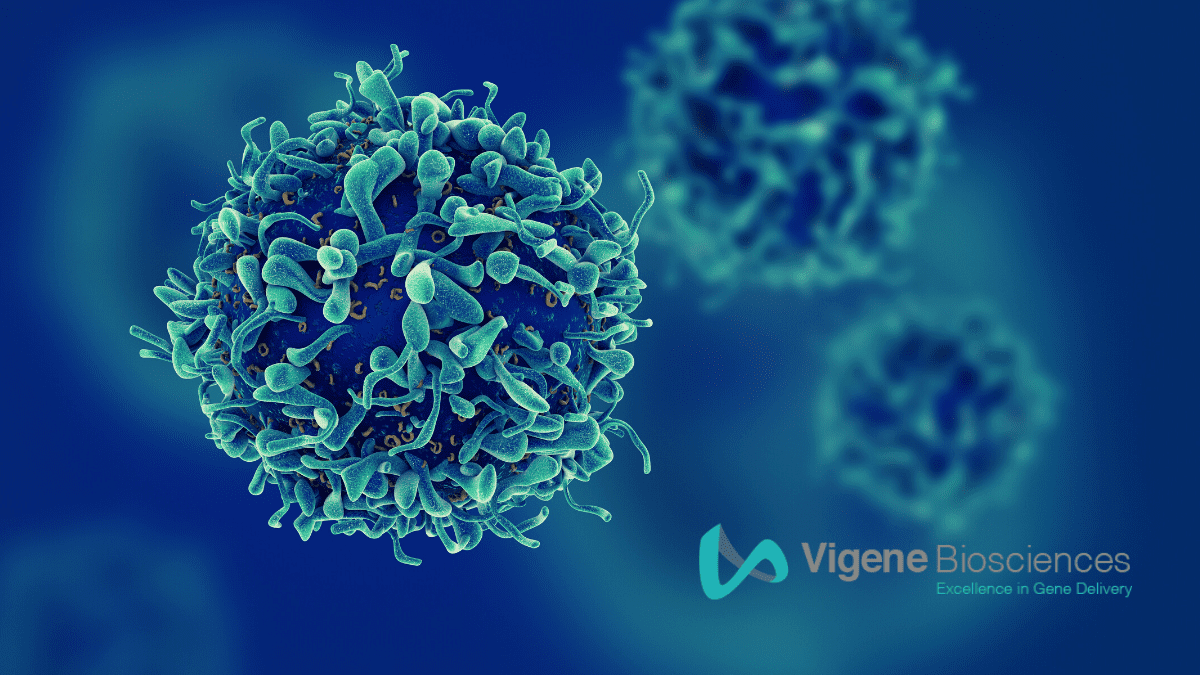
Vigene Biosciences Sees Growth Through a Commitment to Gene Therapy and Rare Diseases
Rare Disease Month a Special Time of Mission Affirmation for the Rockville, Maryland Biotech
About a year ago, BioBuzz attended the grand opening of Vigene Biosciences (Vigene) brand new headquarters in Rockville, Maryland. It was a fantastic day for Vigene, the BioHealth Capital Region (BHCR), and for the patients and families of people suffering from cancer and rare genetic diseases.
Then came the pandemic. And everything changed. Despite the challenges presented by COVID-19, Vigene has continued to thrive.
The company announced in early February 2021 that it will expand its manufacturing footprint in Montgomery County by 52,000 square feet while hiring up to 245 new employees over the next few years. The new lease at 14200 Shady Grove Road will nearly double the company’s manufacturing footprint, and Vigene will be hiring for a wide range of positions in biomanufacturing, quality control, quality assurance, research, and customer service.
At the center of Vigene’s sustained success is outstanding science anchored by a workplace culture deeply committed to patients and their families.
At Vigene’s grand opening ceremony last year, one of the guests of honor was Gina Hann, whose son suffers from the rare genetic disorder Battens Disease. Hann started the Batten Hope Foundation and she spoke at the opening ceremony. It was clear at the grand opening that Hann and her family had built a strong, meaningful connection with the Vigene team.
Vigene’s project portfolio has been growing at a rapid pace and this growth includes a number of new gene therapy partnerships in the rare disease space.
“We have many new gene therapy projects. We have a new project with ASC Therapeutics to provide ASC with access to GMP manufacturing including viral vectors and plasmid DNA for its hemophilia. We are very active in rare disease,” stated Dr. Jeffrey Hung, Vigene’s Chief Commercial Officer.
Reducing R&D and manufacturing costs through innovation and greater efficiency is the key to making these critical gene therapies more affordable to patients in the U.S. and across the globe. With some 4,000 life science companies in its current and former client portfolio, Vigene will play a pivotal role in this effort.
Vigene has its own development programs and it partners with cell and gene therapy developers, providing these companies with the viral vectors needed to develop new cell and gene therapy products. The company’s increased manufacturing capacity and future hiring plans will help accelerate the production of high-quality AAV, Adenovirus, and Lentivirus materials and plasmids, which are often difficult to find in the required quantities.
In addition to the company’s work with the Batten Hope Foundation, Vigene is also engaged in the development of the Accelerating Medicines Partnership – Bespoke Gene Therapy Consortium (AMP-BGTC), which is a proposed public-private partnership to be managed by The Foundation for the National Institutes of Health (FNIH). The consortium is focused on building a pre-competitive partnership between the NIH, The Food and Drug Administration (FDA), and leading pharmaceutical and advocacy organizations to advance the understanding of AAV biology and enable greater access to AAV technologies and vectors for bespoke clinical applications and gene therapies.
“We look forward to working with other foundations in the rare disease space. The purpose of Vigene’s existence is to deliver gene therapy at an affordable level. Rare diseases often find very little commercial interest. But from our point of view, the profit isn’t the entire story—the patient need is much more acute. We exist for these patients, and to borrow Gina Hann’s word, ‘They need to have a shot,’ he added.
Hung went on to emphasize that Vigene has worked hard to build a patient-centered culture and will protect it even as it grows significantly over the next few years.
“Our culture is defined by our core values of quality, innovation, teamwork, and our customers, who are patients…We have very close ties with the rare disease community. COVID-19 has made this more of a challenge because we can’t see people face to face, but we’ve stayed plugged into this community,” stated Hung.
“Cell and gene therapy manufacturing is hard. If people get frazzled under pressure, we hope that having a strong sense of mission, and seeing the value in what we do, will help our team overcome any challenges,” he added.
At Vigene’s grand opening ceremony last year, Hung concluded the celebration by stating, “Here’s to the cures. And here’s to the hope.”
While there has been a lot of change at Vigene in a short time, the company’s connection to its patients has been unwavering. Rare Disease Month is a special time for Vigene that underpins its culture and reaffirms its deep commitment to the company’s mission of bringing more affordable cancer and gene and cell therapies to patients in need across the globe.
“As we grow, the new people we hire need to have this same perspective. It is very important for our people to orient our mindset to our mission…Preserving Vigene’s culture is not always easy because all new hires have their own life experiences, but the mission is why we come here to work every day,” stated Hung.
- About the Author
- Latest Posts
Steve brings nearly twenty years of experience in marketing and content creation to the WorkForce Genetics team. He loves writing engaging content and working with partners, companies, and individuals to share their unique stories and showcase their work. Steve holds a BA in English from Providence College and an MA in American Literature from Montclair State University. He lives in Frederick, Maryland with his wife, two sons, and the family dog.





